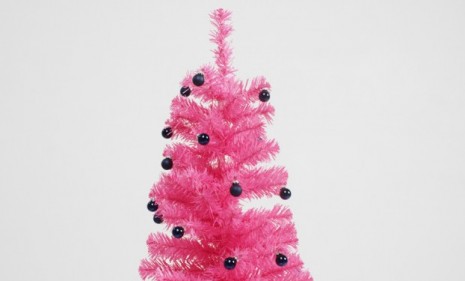Are fake Christmas trees really better for the environment?
Many think reusing a plastic tree year after year is the greener option, but a new study says that isn't the case

For many families, the big question this Christmas isn't what to get mom or dad — it's whether to go real or fake when it comes to Christmas trees. Increasingly, Americans are opting for fake trees, with more than 50 million artificial evergreens expected to light up living rooms this year, compared to some 30 million real trees, according to The New York Times. Many assume reusing a fake tree year after year is the more environmentally conscious holiday choice, but, according to one of the authors of what's been deemed "the most definitive study of the perennial real vs. fake question," natural trees are the greener option. Are they really?
Real trees are clearly better: Most fake trees are imported from Asia and end up in landfills after six to 10 years, says John Collins Rudolf in The New York Times. According to the "definitive" study on the subject, they "would have to be reused for more than 20 years to be greener than buying a fresh-cut tree annually." Besides, real trees generate oxygen, "help preserve farmland," and can be recycled into compost after the holidays.
"How green is your artificial Christmas tree? You might be surprised"
The Week
Escape your echo chamber. Get the facts behind the news, plus analysis from multiple perspectives.

Sign up for The Week's Free Newsletters
From our morning news briefing to a weekly Good News Newsletter, get the best of The Week delivered directly to your inbox.
From our morning news briefing to a weekly Good News Newsletter, get the best of The Week delivered directly to your inbox.
It is not so clear-cut: While the balance tips in favor of natural trees, "there are caveats," says Monica Eng in the Chicago Tribune. Artificial trees are more environmentally friendly "if the consumer drives more than nine miles to purchase a real tree" or holds onto an artificial tree for decades. And, "no matter what kind of tree you get, you can lower your carbon footprint by disposing of it properly" when the times comes to say goodbye.
There are greener alternatives: It's not just a question of real or fake," says Kim Carlson in the Star Tribune. There are other ways to go — buy a potted tree, rent a living tree, decorate a dead branch, or forget the tree altogether. You can simply "let Mother Nature be your holiday designer" and decorate with pine cones, pomegranates, cedar branches, and the like.
A free daily email with the biggest news stories of the day – and the best features from TheWeek.com
There are far bigger environmental questions to consider: While "the natural tree is a better option than the artificial tree," say Sylvain Couillard, Gontran Bage, and Jean-Sebastien Trudel in the Ellipsos study, the impact of Christmas trees on the environment is "negligible compared to other activities, such as car use."
"Comparative life cycle assessment (LCA) of artificial vs. natural Christmas tree"
-
 5 chilling cartoons about increasing ICE aggression
5 chilling cartoons about increasing ICE aggressionCartoons Artists take on respect for the law, the Fourth Amendment, and more
-
 Political cartoons for January 24
Political cartoons for January 24Cartoons Saturday's political cartoons include 3D chess, political distractions, and more
-
 Ryanair/SpaceX: could Musk really buy the airline?
Ryanair/SpaceX: could Musk really buy the airline?Talking Point Irish budget carrier has become embroiled in unlikely feud with the world’s wealthiest man